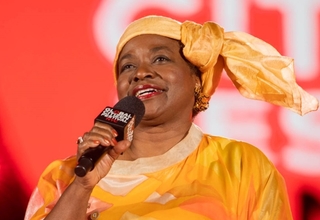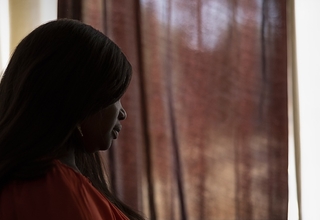ANTANANARIVO, Madagascar – United Nations Secretary-General Ban Ki-moon and his wife, Ban Soon-taek visited Madagascar to view UN interventions, including those by the United Nations Population Fund, UNFPA.
Madagascar’s First Lady, Voahangy Rajaonarimampianina, who is the Goodwill Ambassador for the Campaign for Accelerated Reduction of Maternal Mortality in Africa (CARMMA) in Madagascar, accompanied Mrs. Ban on her tour of Befelatanana Maternity Hospital and the Tsimbazaza training centre, a vocational training centre for women in Tsimbazaza.
The visit to the maternity hospital provided an opportunity to learn about Madagascar’s health indicators, in particular maternal, neonatal and child health.
She was present for the inauguration of an emergency operating room for complications related to pregnancy and childbirth, which was rehabilitated by UNFPA Madagascar.
UNFPA presented the hospital with a new mobile operating light and anesthesia ventilator. An anticipated 4000 free deliveries and 1500 Caesarian section and gynaecological surgeries are expected to be held in the hospital every year, due to UNFPA’s support.
Befelatanana, the largest maternity hospital in Madagascar, performs most of the deliveries for vulnerable populations. It is the referral hospital for obstetrics, gynaecology and reproductive health.
Mrs. Ban paid a visit to the Tsimbazaza training centre for women, the creation of which was an initiative of the First Lady. The centre offers training for women ranging from sewing to cooking, gardening and computing. A library is available at the centre, as well as a listening and counselling service for survivors of gender-based violence, implemented with the support of UNFPA.
All of the modules and services at the training centre are provided at a very low cost for the women who take advantage of them, the aim being to provide professional training to empower them and build their autonomy. The ultimate aim is for them to participate in their families’ and communities’ economic development.


